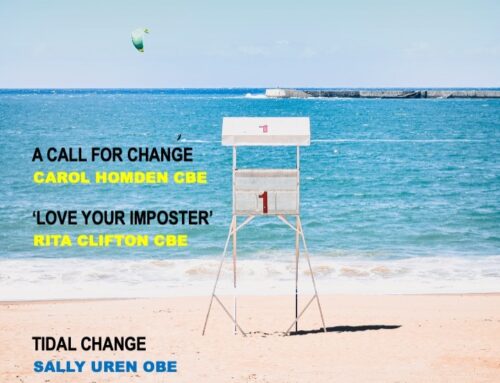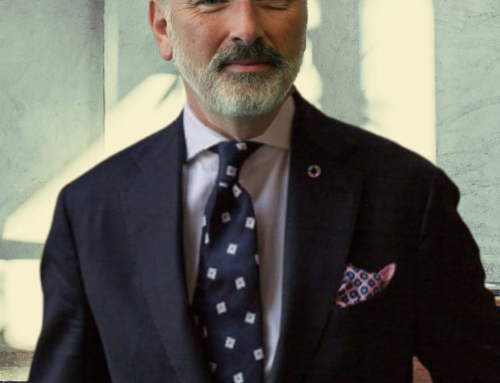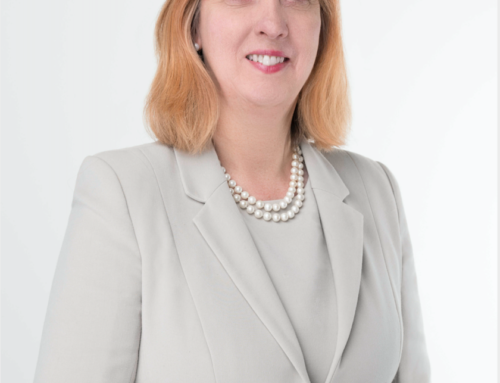Elizabeth Filippouli
The Long View

Plagues and epidemics have ravaged humanity throughout its existence, often changing the course of history. Around 430 B.C., not long after a war between Athens and Sparta began, an epidemic ravaged the people of Athens.
It lasted for five years and it took between 75,000- 100,000 lives. The Greek historian Thucydides (460-400 B.C.), who contracted the disease himself and survived, reports that “people in good health were all of a sudden attacked by violent heats in the head, and redness and inflammation in the eyes”.
To that day it is still unclear what exactly this epidemic was. Some scientists say it was typhoid fever and others believe it was Ebola. The effect was devastating for the city-state of Athens.
Fast forward twenty-five centuries later and the same variables are still in place: human vulnerability and an invisible enemy in the form of a deadly virus.
Main difference is that today, due to globalisation, the threat becomes far worse. It is global. If there is one thing that the CoVid-19 crisis has reminded us of it is our mortality. We all know -and to some extent accept- that one day we will cease to exist. But the human psyche naturally tends to push the prospect of death towards a faraway vagueness.
Our common sense should know better! I will side with those who argue that Humanity’s worse enemies are recklessness, ignorance and arrogance.
We consume at a pace that would make sense only if we had 1.6 Earths available to us! We have been ignoring for far too long a series of pressing global matters such as global warming, water pollution, deforestation, poverty-as well as the risk of a global pandemic. And now the enemy has arrived in full armour.
This challenging period is also a time for reflection. We have landed a tremendous opportunity, albeit in disguise. For our generation this is our opportunity to reset our future, and the future of Humanity. In 1993, William Gibson had wisely alerted us that: ‘The future is already here — it’s just unevenly distributed.’
Today every single government around the world is faced with the Herculean task of protecting the lives of its people. All of us should do our part in protecting the lives of hundreds of thousands of people and the health of millions. What all of us together should start working on imminently is protecting, and restoring, livelihoods. We are being forced into a paradigm shift, which was happening, but we were ignoring. Now is time to hold accountable everyone who has any level of power: political and business leaders, philanthropists, institutions, media. Now is time for every citizen to understand that they have a role to play in actively contributing to our collective recovery. None of us are innocent anymore, the age of innocence is gone.
The lessons we are taking, are much harder than we actually realise at the moment. They are lessons for our governments, our public health systems, our long-established institutions, like the UN and the EU.
No wonder they (we) have failed to prevent or contain this pandemic. The shock is uniform because the effect can very easily turn into something more widespread.
The actual crisis has so far been mostly asymmetric: some countries have been much more affected than others. In the aftermath of CoVid-19, that can become a strong force for disunity and disintegration across the European continent. Pretty much everything will inevitably come into question when the dust settles. It has been a grave mistake to stick with conventional, outdated responses to unconventional scenarios, like this one.
We have been pushing down the agenda, for far too long, the urgency of dealing with pressing global matters such as economic inequality, population movement, the refugee crisis, global warming, water pollution, deforestation, resource depletion, poverty. The coronavirus pandemic presents an opportunity for the human family to act in solidarity and turn this crisis into an impetus to work jointly towards the Sustainable Development Goals. As Milton Friedman has argued, ‘only a crisis- actual or perceived- produces real change. When that crisis occurs, the actions that are taken depend on the ideas that are lying around’.
Right now, in the midst of global frustration, panic, confusion, speculation and conspiracy theories we are being bombarded by many conflicting narratives.
We will need to rise above the battle of narratives, as a new reality is forming, and we have been given the tremendous chance to influence it. Nothing should detract us from winning this war. The fight is about creating new, more resilient and collaborative societies and a healthier global ecosystem.
The fight is about introducing solidarity and accountability into our day to day lives. The fight is about getting vaccinated against the underlying conditions of ignorance, intolerance and arrogance.
Accountability is the only answer in the aftermath of the CoVid-19 crisis. CoVid-19 has just restarted our future.
Elizabeth Filippouli
Founder, Global Thinkers Forum & Athena40
@ElizaFilippouli
@GlobalThinkersF
@Athena_40
LinkedIn
http://www.globalthinkersforum.org/
https://www.athena40forum.com/


Elizabeth Filippouli
The Long View

Plagues and epidemics have ravaged humanity throughout its existence, often changing the course of history. Around 430 B.C., not long after a war between Athens and Sparta began, an epidemic ravaged the people of Athens.
It lasted for five years and it took between 75,000- 100,000 lives. The Greek historian Thucydides (460-400 B.C.), who contracted the disease himself and survived, reports that “people in good health were all of a sudden attacked by violent heats in the head, and redness and inflammation in the eyes”.
To that day it is still unclear what exactly this epidemic was. Some scientists say it was typhoid fever and others believe it was Ebola. The effect was devastating for the city-state of Athens.
Fast forward twenty-five centuries later and the same variables are still in place: human vulnerability and an invisible enemy in the form of a deadly virus.
Main difference is that today, due to globalisation, the threat becomes far worse. It is global. If there is one thing that the CoVid-19 crisis has reminded us of it is our mortality. We all know -and to some extent accept- that one day we will cease to exist. But the human psyche naturally tends to push the prospect of death towards a faraway vagueness.
Our common sense should know better! I will side with those who argue that Humanity’s worse enemies are recklessness, ignorance and arrogance.
We consume at a pace that would make sense only if we had 1.6 Earths available to us! We have been ignoring for far too long a series of pressing global matters such as global warming, water pollution, deforestation, poverty-as well as the risk of a global pandemic. And now the enemy has arrived in full armour.
This challenging period is also a time for reflection. We have landed a tremendous opportunity, albeit in disguise. For our generation this is our opportunity to reset our future, and the future of Humanity. In 1993, William Gibson had wisely alerted us that: ‘The future is already here — it’s just unevenly distributed.’
Today every single government around the world is faced with the Herculean task of protecting the lives of its people. All of us should do our part in protecting the lives of hundreds of thousands of people and the health of millions. What all of us together should start working on imminently is protecting, and restoring, livelihoods. We are being forced into a paradigm shift, which was happening, but we were ignoring. Now is time to hold accountable everyone who has any level of power: political and business leaders, philanthropists, institutions, media. Now is time for every citizen to understand that they have a role to play in actively contributing to our collective recovery. None of us are innocent anymore, the age of innocence is gone.
The lessons we are taking, are much harder than we actually realise at the moment. They are lessons for our governments, our public health systems, our long-established institutions, like the UN and the EU.
No wonder they (we) have failed to prevent or contain this pandemic. The shock is uniform because the effect can very easily turn into something more widespread.
The actual crisis has so far been mostly asymmetric: some countries have been much more affected than others. In the aftermath of CoVid-19, that can become a strong force for disunity and disintegration across the European continent. Pretty much everything will inevitably come into question when the dust settles. It has been a grave mistake to stick with conventional, outdated responses to unconventional scenarios, like this one.
We have been pushing down the agenda, for far too long, the urgency of dealing with pressing global matters such as economic inequality, population movement, the refugee crisis, global warming, water pollution, deforestation, resource depletion, poverty. The coronavirus pandemic presents an opportunity for the human family to act in solidarity and turn this crisis into an impetus to work jointly towards the Sustainable Development Goals. As Milton Friedman has argued, ‘only a crisis- actual or perceived- produces real change. When that crisis occurs, the actions that are taken depend on the ideas that are lying around’.
Right now, in the midst of global frustration, panic, confusion, speculation and conspiracy theories we are being bombarded by many conflicting narratives.
We will need to rise above the battle of narratives, as a new reality is forming, and we have been given the tremendous chance to influence it. Nothing should detract us from winning this war. The fight is about creating new, more resilient and collaborative societies and a healthier global ecosystem.
The fight is about introducing solidarity and accountability into our day to day lives. The fight is about getting vaccinated against the underlying conditions of ignorance, intolerance and arrogance.
Accountability is the only answer in the aftermath of the CoVid-19 crisis. CoVid-19 has just restarted our future.
Elizabeth Filippouli
Founder, Global Thinkers Forum & Athena40
@ElizaFilippouli
@GlobalThinkersF
@Athena_40
LinkedIn
http://www.globalthinkersforum.org/
https://www.athena40forum.com/





